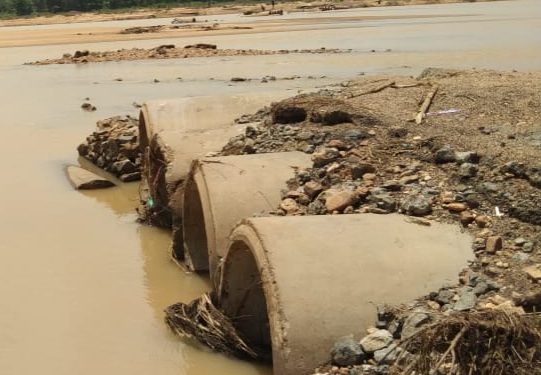Rourkela: Nandita Kujur, the tehsildar of Lathikata in Sundargarh district, Wednesday started an investigation into the alleged pollution of Shankha River here in the district. A person, who got a lease to lift sand from the river bed near Beldihi Vedvyas, reportedly dumped a huge quantity of charcoal, an industrial residue from local sponge iron units inside the river. He did this to set up a road so that his trucks could go deep into the river to lift sand. The charcoal works as a solid top on the sandy bed and can bear the weight of loaded vehicles. Besides, there were large RCC pipes laid on the river bed, which worked as a makeshift bridge to take the heavy vehicles to the other side of the river for excavation.
After receiving complaints from locals, Orissa POST carried an article on this illegality July 22. Kujur initiated the probe after the news was brought to her notice. “I have started an investigation into the matter after the issue came to my notice. The Revenue Inspector (RI) also did a spot verification and found the allegations to be true,” acknowledged the tehsildar. Asked if she has taken any immediate action, the tehsildar said, “I have spoken to the leaseholder, who is outside the state at this moment, and ordered him to clean whatever dump is there.” Besides, Kujur also informed, “I have brought this to the notice of the State Pollution Control Board officials and have asked them to take necessary action in the matter.” Contacted, RI Harshit Kandulana said, “We have imposed a fine of Rs 20,000 on the leaseholder and soon he would deposit the amount with the government.” An attempt to contact Anup Mallick, the regional officer of SPCB Rourkela, failed as the telephone number mentioned against his name on Board’s website was unreachable.
Earlier, local residents raised the issue with this correspondent after facing trouble due to the pollution arising out of charcoal dumping. Their livelihood is at stake as they fail to get enough fish from the river, locals alleged. Besides, the water of the river has been polluted making it unusable for human use and people who take baths in the river also suffer from skin infections, they added.







































